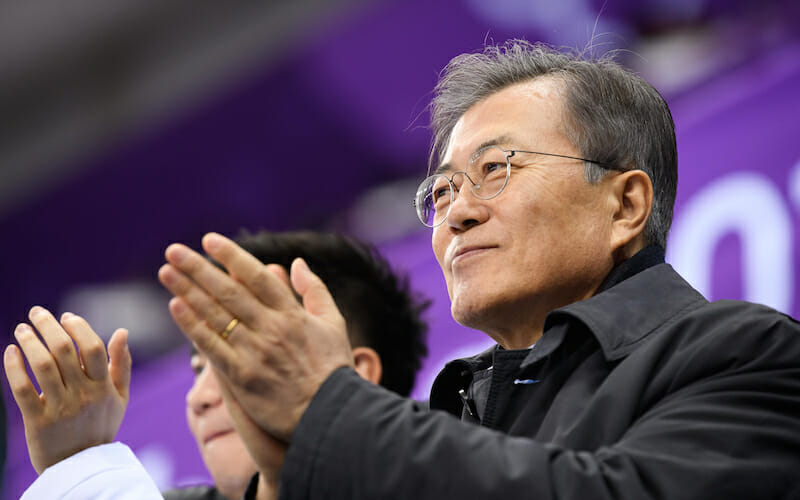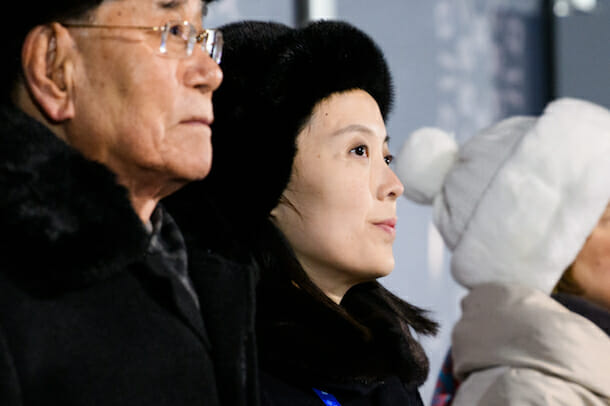
Why Young South Koreans Don’t Want Reunification Anymore
When the South Korean government announced the unified Korean opening ceremony entrance and joint ice hockey Olympics team, President Moon Jae-in called the event “a candle that sheds light on peace.” South Korean citizens, however, were not so optimistic: over 50% of South Koreans in their 30’s opposed the team. When interviewed, a 31-year-old worker stated that the North Korean team was free riding off of the South Korean team’s hard earned success. While concerning, this response is not unexpected. In a recent survey conducted by the Korea Institute for National Reunification in Seoul, 71.2% of South Koreans in their twenties indicated that they were against reunification.
The standard narrative for a growing indifference to North Korea among South Korean youths is the cultural generational gap: young people have no living memory of the division nor its immediate consequences. A recent Asan Institute study found that only 14.1% of South Koreans in their twenties view North Koreans as “one of us.” While it is true that South Korean youths are more removed from Korea’s past as a unified nation, this fact does not fully explain the phenomenon. South Korean youths’ cultural value systems are not completely separated from that of the older generation: their negative views on the current Japanese government and Japan’s historical legacies still align. As such, just using the cultural gap to explain their waning affinity to a unified country is not enough. Why, then, does the younger generation no longer care about a nation that was once part of their own?
Ultimately, South Korean youths are turning away from reunification due to the financial burden that their generation will have to carry because of it. If reunification happened in 2020, it would cost the South as much as $591 billion dollars over a decade. Former President Lee Myung-bak proposed a unification tax in 2010 that would aid with the enormous costs.
However, when surveyed in 2015, while an average of 56% of South Korean citizens aged 40-60+ expressed willingness to pay this tax, only around 35% of citizens aged 20-30 agreed with the proposal. The former president also instituted a public funding effort for reunification, but the project only collected $700,000, demonstrating the increasing unwillingness of South Koreans to bear the brunt of this task. Former president Park, realizing this trend towards economic pessimism, began to promote the phrase “Reunification as bonanza,” using a slang term popular amongst young people. She touted that the North’s labor combined with the South’s technological advancements would create jobs and jumpstart the Korean economy.

Many South Korean youths, however, are unconvinced. For them, the stakes of reunification are still too high. Even though South Korea’s GDP has been growing consistently at a rate of 3% since the recession, this indicator of economic wellbeing does not translate to the younger generation. In 2017, youth unemployment in South Korea was at 11.3%, more than three times the overall rate. Even worse, the sentiment jobless rate was 22.7%. What could account for such cynicism among young people regarding their employment prospects is South Korea’s top-to-bottom management model and its corporate emphasis on loyalty over skill, which lead to the creation of inflexible labor markets. There is no room for youths to be promoted in or even enter the corporate hierarchy as the older generation remains in the workforce, regardless of merit. In addition, the prevalence of conglomerates in South Korea squeeze out small businesses and further decrease the number of jobs available. As such, even South Korean youths who attend the best schools in the country worry about employment after graduation.
As seen by South Korean youths, reunification would further decrease their job prospects in an already highly competitive environment: support for North Korean defectors has declined almost 20% in the past eight years. In contrast to the United States, the nuclear threat is hardly on South Korean citizens’ minds. During the presidential campaign in 2012, the importance of South-North relations to citizens remained below 10%, despite the missile test performed just months before. Essentially, while their economic situation is something these youths can actively fight to improve, there really is nothing that one can do to prepare for nuclear war. Frankly, for South Korea’s younger generation, the cruel tangibility of unemployment, financial stagnation, and societal pressures heavily outweigh the “vague, distant reality” of missiles to the North.
Due to these socioeconomic problems, President Moon was elected with a decisive influence by voters in their 20s and 30s. At the time of the election, the approval rating for him among this age group was over 90% due to his liberal economic policies of higher taxes on the wealthy, welfare benefits for unemployed youth, and stricter regulation of conglomerates. However, as the son of two North Korean refugees, President Moon also views reunification as an important part of his presidency. As such, his recent South-North policies and strong promotion of the joint Olympics team to the international community as steps towards peace has contributed to a decline in his approval from citizens in their 20s to 76% as of January 2018.
South Korean youths want to see change regarding almost all aspects of their society except North Korea. Rather than putting their efforts towards trying to fix the world around them shrouded in unknowns, they would rather see progress in their concrete immediate futures. South Korean youths are simply not ready to pay for the actions of the current adult generation amid such bleak economic prospects. The implications of this shifting mindset are troubling. Even though young people prefer it, the status quo regarding the South-North situation is simply unsustainable. Tensions will only continue to escalate between the United States, South Korea, and North Korea without further action on all sides. In order for South Korean youths to reconsider reunification and peace on the peninsula as a priority in the region, President Moon must focus on his domestic agenda and begin acting on his campaign promise of revitalizing the country’s stagnating socioeconomic system.

